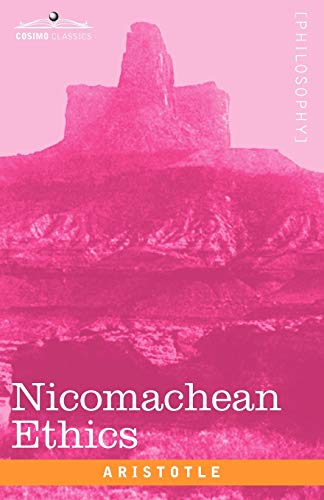Product Review
The writings of Greek philosopher ARISTOTLE (384BC–322BC)―student of Plato, teacher of Alexander the Great―are among the most influential on Western thought, and indeed upon Western civilization itself. From theology and logic to politics and even biology, there is no area of human knowledge that has not been touched by his thinking. In Nicomachean Ethics―considered a companion piece to Aristotle’s Politics―the philosopher explores concepts of virtue, character, and happiness. What is the essence of being human? Do people have an ultimate function? Can desire be virtuous? What is morality? How should ethics work in the larger culture? What is justice? How should we define evil? All these questions, and others, are discussed and debated in this, one of the world’s great books. Students and armchair philosophers will find it a challenging―and rewarding―read.











